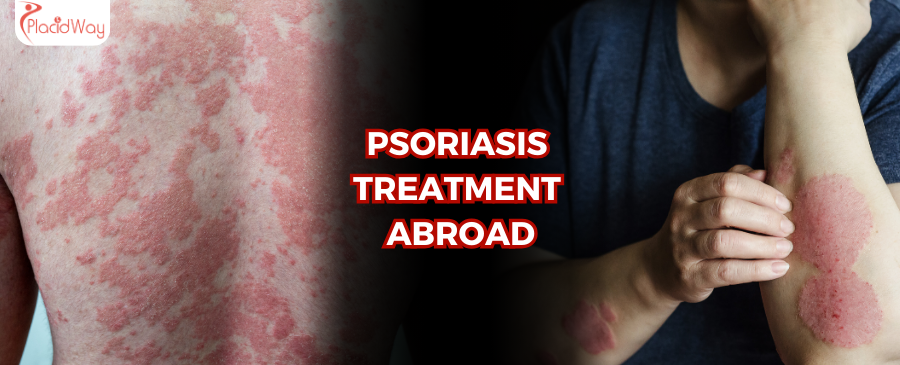
Table of Content
Psoriasis is a chronic autoimmune condition that accelerates the growth cycle of skin cells, leading to the development of red, scaly patches on the skin. These patches, which often cause itching and discomfort, can vary in size and severity. While the exact cause is unknown, psoriasis is believed to be influenced by genetic and environmental factors. Although there is no cure, various treatments can help manage symptoms and improve quality of life. Seeking treatment abroad can provide access to advanced therapies and expertise.
| Treatment | Description |
|---|---|
| Topical Treatments | Creams and ointments applied directly to the skin, including corticosteroids and vitamin D analogues. |
| Phototherapy | UV light therapy that slows skin cell turnover and reduces scaling and inflammation. |
| Biologic Medications | Targeted therapies that modify immune system response, effective for moderate to severe psoriasis. |
| Excimer Laser Therapy | Precise laser treatment focusing on affected areas without impacting surrounding skin. |
Click here to explore psoriasis treatment options available abroad.
The treatment procedure for psoriasis depends on the severity and type of treatment chosen:
| Country | Average Cost (USD) |
|---|---|
| Mexico | $1,200 - $2,500 |
| Turkey | $1,500 - $3,000 |
| Thailand | $1,400 - $3,000 |
| Colombia | $1,000 - $2,500 |
| India | $800 - $2,000 |
| Austria | $3,000 - $5,000 |
| USA | $5,000 - $8,000 |
| UK | $4,000 - $7,000 |
Find Prices for Psoriasis Treatment Near You
The cost of psoriasis treatment without insurance varies by country and treatment type, ranging from $800 to $8,000. Patients often explore international options to access affordable, high-quality care.
The duration of treatment depends on the severity of psoriasis and the type of therapy. Phototherapy may take several weeks, while biologic treatments are often administered every few weeks over months or longer.
Most psoriasis treatments are not painful, though some patients may experience mild skin irritation with topical treatments or phototherapy. Any discomfort is generally manageable and temporary.
Biologics can cause side effects, including respiratory infections, headaches, and fatigue. It is important to discuss potential risks with your doctor and monitor for any adverse effects during treatment.
Currently, there is no cure for psoriasis, but treatments can effectively manage symptoms and reduce flare-ups. With proper care, many patients experience significant improvement in their skin condition.
Considering psoriasis treatment abroad? PlacidWay can connect you with top dermatology clinics and specialists worldwide, offering advanced, personalized treatment options for effective symptom management. Book your consultation today to find affordable, high-quality care and regain confidence in your skin health.
Alternative Chronic Health Therapies | Best Medical Centers Abroad